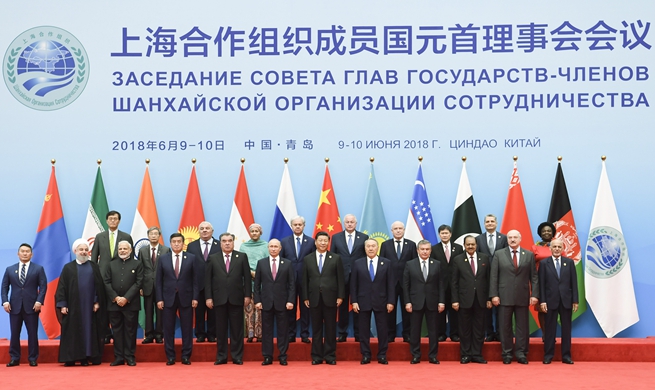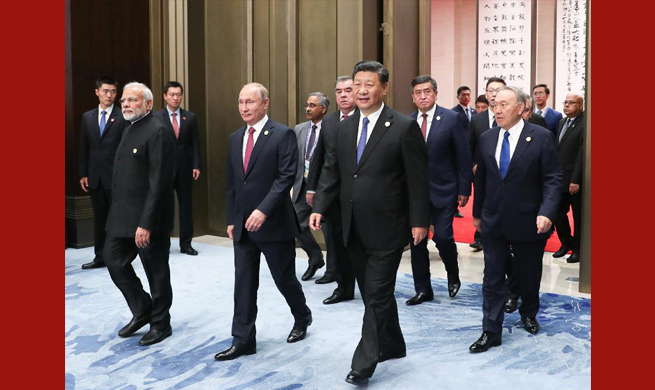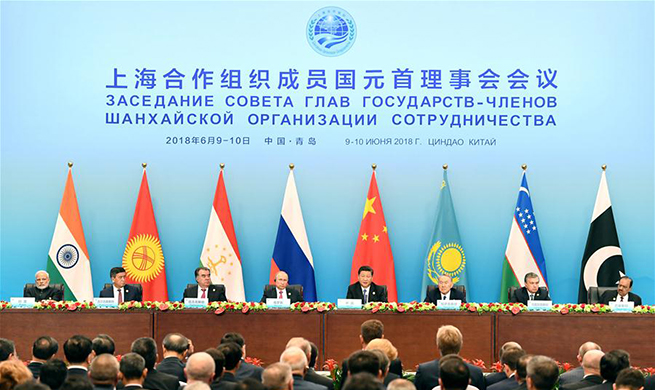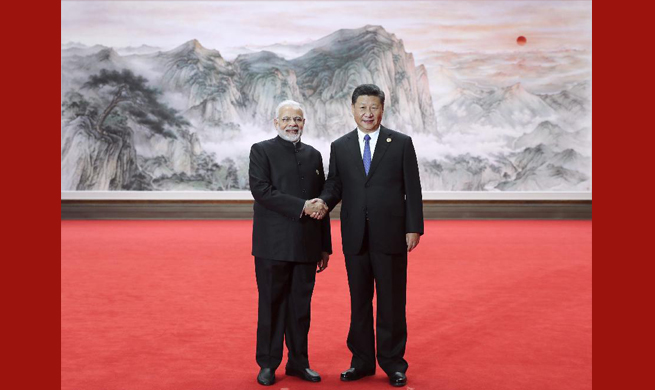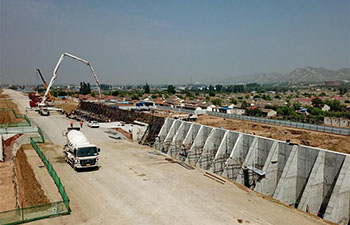GAZA, June 12 (Xinhua) -- Palestinian observers believe that there is still little chance to reach a long-term truce agreement between the Palestinian factions in the Gaza Strip and Israel.
International calls have increased recently for the need to find solutions to the worsening humanitarian crisis in the Gaza Strip, which has been under Israel blockade since mid-2007.
The calls came amid growing tension on the borders of the Gaza Strip and Israel where the Palestinians have launched ongoing anti-Israel protests that have so far left 127 Palestinians dead and tens of thousands wounded.
Recent reports said international and regional efforts had reached a truce agreement Israel and Hamas, which has been in control of the Gaza Strip since 2007.
According to the reports, the supposed four-year agreement will include Israeli humanitarian facilitations to improve the economic and humanitarian situation in the seaside territory.
On Sunday, the Israeli mini-cabinet held a meeting to discuss the growing humanitarian crisis in the Gaza Strip and ways possible to ease the conditions there.
However, observers believe an agreement between Israel and Hamas to cool tension and avoid a possible military confrontation is still out of reach.
"Such an agreement is not easy to reach," Gaza-based writer and political analyst Adnan Abu Amer told Xinhua.
The gaps between Israel and Hamas are wide and difficult to bridge, he said. "This means that the situation will not change."
Abu Amer added that reports about a solution to Gaza's crises are nothing more than trial balloons.
"The Israelis do not see themselves forced to end the humanitarian crisis of the Gaza Strip... the most likely option is to continue formal actions to manage the crisis, not solve it fully," he pointed out.
Gaza has been placed under a tight Israeli blockade since the Islamic Hamas movement seized the territory by force after routing forces loyal to President Mahmoud Abbas in 2007.
In the past six years, Israel and Hamas have been engaged in three major wars that have claimed the lives of thousands of Palestinians and Israelis.
The blockade has pushed Gaza's populations deeper into poverty as economists in Gaza point out that extreme poverty hit 53 percent in 2017 compared with 37 percent in 2011.
The coastal enclave has also been suffering from a political division that was caused by Hamas violent takeover of Gaza.
Political analyst Hani Habib from Gaza believes that holding a meeting of the Israeli cabinet to discuss the situation in Gaza means there has been some action to set a plan to solve the crisis of Gaza.
But Habib said that there is no internal Israeli consensus on the plan, pointing out that Israeli Defense Minister Avigdor Lieberman opposes such a plan.
"Lieberman believes that the idea that giving facilitation to Gaza would help cool the security situation in Israel is a completely wrong bet," Habib told Xinhua.
He said that Israel has monitored the worsening humanitarian crisis in Gaza for one year without providing any solution, adding that Israel has seriously started to search for solutions after the "Great March of Return" along the Gaza-Israel borders, which demands the return of Palestinian refugees who were forced to leave their cities during the Arab-Israeli war in 1948 as well as lifting the blockade.
Habib linked the talk of a solution to the crisis in Gaza and the possibility of announcing the U.S. administration's peace plan of the deal of the century "which will focus on the Gaza Strip specifically to promote the internal Palestinian division."
In March, the White House hosted an international meeting that was attended by 19 countries, including Israel and Arab Gulf states, to address the humanitarian crisis in Gaza.
The meeting was boycotted by the Palestinian Authority, which said the meeting is meant to undermine the "national Palestinian project" by creating a state in Gaza.
"Israel is not going to reach any agreement with any Palestinian party as Israel's main political factions seek to complicate the conflict with the Palestinians," Ramallah-based expert of Israeli affairs, Ashraf al-Ajrami, told Xinhua.
He noted that a recent Israeli poll found that the ruling Likud party would win 31 seats in the Knesset (Israel's parliament) if elections were held now, keeping it as the largest faction in parliament with one more seat than it currently has.
Al-Ajrami said the Israeli far-right succeeded in raising fear of the Israeli public of developments in the region and the alleged threats to Israel's security.
"This gave the Israeli public the feeling that a right-wing government must be in power to deal with these challenges, which undermines any chances of agreements with the Palestinians," he pointed out.










